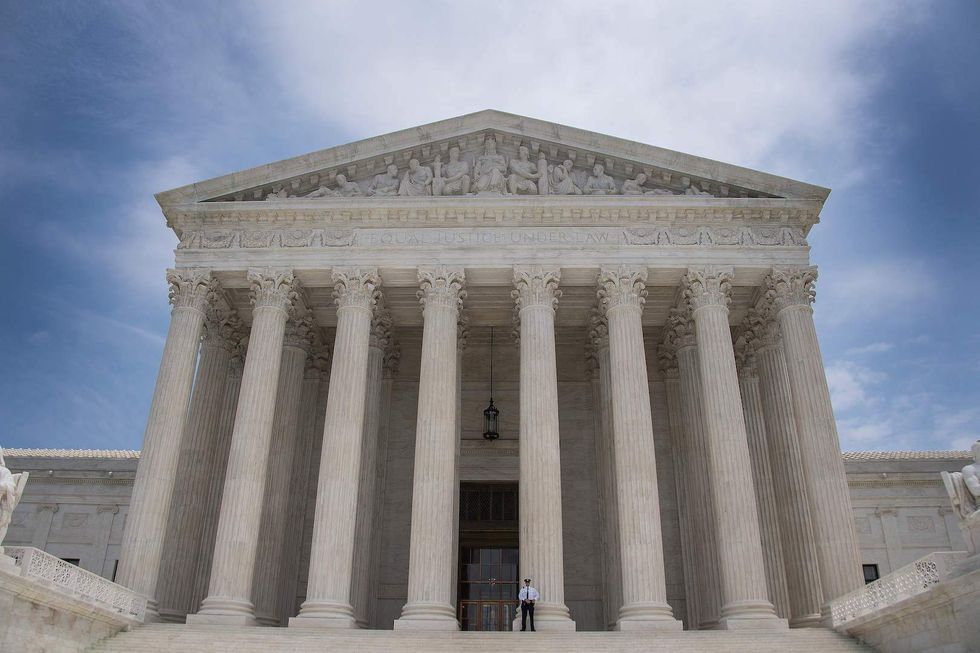
The Supreme Court struck down a law banning registered sex offenders from using social media websites, like Facebook, in an opinion handed down Monday morning. (Jim Watson/AFP/Getty Images)

The Supreme Court unanimously struck down a law banning registered sex offenders from using social media websites like Facebook in an opinion handed down Monday morning.
The court heard the case after a lower court upheld the constitutionality of a North Carolina law making it a felony for a registered sex offender to join a social networking site.
"It is unlawful for a sex offender who is registered ... to access a commercial social networking site where the sex offender knows that the site permits minor children to become members or to create or maintain personal Web pages on the commercial social networking site," the law reads.
North Carolina resident Lester Packingham, a registered sex offender, was found guilty of violating the law aimed at curbing the threat sexual predators pose to children online after writing an unrelated public Facebook post expressing his relief over a dismissed traffic ticket.
"No fine, no court costs, no nothing spent….Praise be to GOD, WOW! Thanks JESUS," Packingham wrote on his Facebook account. Packingham was apprehended and arrested after a police officer discovered the post.
SCOTUS judges agreed with Packingham's lawyers, who argued that the North Carolina law criminally punishes American citizens for activity fully protected under the First Amendment.
According to CNN, attorney David Goldberg said that the restrictive law extends to "vast swaths of core First Amendment activity that is totally unrelated to the government's preventative purpose."
State attorneys for North Carolina argued that the law was necessary for law enforcement to proactively cease the activity before the crime is committed, but it wasn't enough to convince Supreme Court justices to uphold the law.
Senior Associate Justice Anthony Kennedy wrote in the opinion that the law was too restrictive, infringing on criminals' rights and also shutting them out of a forum where they could attempt to better themselves.
"To foreclose access to social media altogether is to prevent the user from engaging in the legitimate exercise of First Amendment rights," Kennedy wrote. "Even convicted criminals — and in some instances especially convicted criminals — might receive legitimate benefits from these means for access to the world of ideas, in particular if they seek to reform and to pursue lawful and rewarding lives."
The case was one of the first Supreme Court decisions that addresses the First Amendment on social networking sites.
"The Court must exercise extreme caution before suggesting that the First Amendment provides scant protection for access to vast networks in that medium," Kennedy added in the written opinion.